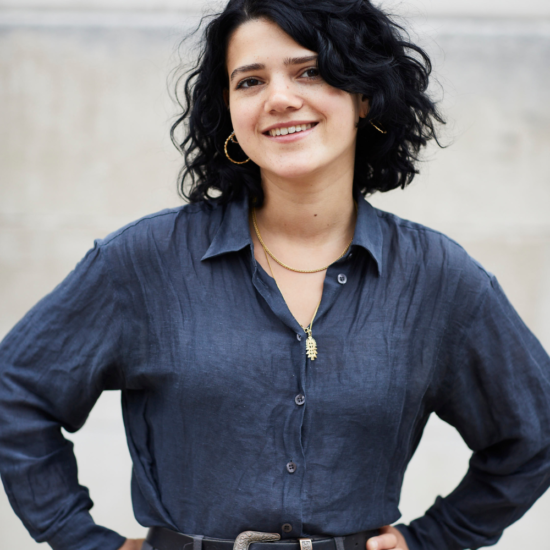Co-design and co-production to support funding for place-based systems change
Themes from a Community discussion featuring speakers from Paul Hamlyn Foundation and the Connected Futures Burnley Partnership.
At our last Place-Based Systems Change Community meeting we explored the theme of co-design and co-production to support funding for place-based systems change.
With guest speakers from Connected Futures, Burnley Partnership, and the Paul Hamlyn Foundation we discussed how participatory approaches can help to shift power in places.
While the terms co-production and co-design are ‘trendy’ and can be used as lightning rods to access funding, we agreed they must be more clearly defined so all parties have a mutual understanding and expectations.
To begin the conversation, we shared our definitions of the terms:
Co-design – the process of bringing together people that represent different skills and experience around an issue to design a product, service or system.
Co-production? Co-production goes beyond co-design to also bring multiple stakeholders into collaborative decision-making processes around the delivery and ongoing evaluation and development of a service.
Renaisi’s Place & Systems Project Manager Kezia Jackson-Harman explained:
“Co-production often centres the role of power sharing in the process, which should create mechanisms and structures that ensure a wider set of stakeholders have power to direct a service and feel like effective agents of change.
Co-design processes also aim for and result in power sharing, but are often more short term and sometimes driven by ambitions to make a service more effective or efficient.”
Why we talked about co-design and co-production
The topic emerged from a Place-Based Systems Change Community discussion last year about the potential of co-design to rebalance funder-practitioner power dynamics.
While neither co-design nor co-production can fully shift the inherent funder-practitioner power dynamic, the Community had flagged that they can:
- Develop funding processes that are less burdensome for grantees
- Bring together organisations that are normally driven to compete for funds to build something together, which can support relationships that enable further collaboration
- Lead to more adaptable and flexible funding approaches, as funders have a deeper understanding of the practitioner/grantee experience
- Shift power away from funders and towards practitioners where they are given long-term roles in directing/overseeing funding distribution
Guest speakers
At the start of the session, we heard from Sam Howarth and Lindsey Dansen from the Connected Futures Burnley a Partnership.
The Youth Futures Foundation’s Connected Futures is a £16m fund to test new approaches to breaking down barriers and improving access to employment for young people. The Foundation is funding nine places across England to work in partnership to understand and implement changes to the youth employment system in their place. They are co designing their approach with young people.
The Burnley Connected Futures Partnership, led by Calico Enterprise, is exploring why young people in Burnley, especially those with Bangladeshi or Pakistani heritage, who are long term unemployed or have experience of the care system struggle to navigate existing employment pathways.
They are looking to co-produce, with young people, approaches to improve and create better pathways to employment.
Of their place-based funding, Megan Haskell, from Youth Futures Foundation said:
“Acknowledging as a funder, even if you have a long term vision you won’t be there forever is even more reason to work in this way.”
We also heard from Joshua Samuels and Andy Curtis from the Paul Hamlyn Foundation Collaborative Inquiry into Lived Experience Leadership in the Migration Sector
Their participatory research inquiry is led by a learning collective of six individuals, including Joshua, who have experienced the injustices caused by the UK immigration system. It aims to generate actionable learning on the role of lived experience leadership in the UK migration sector.
Central to this inquiry is a focus on the experiences, powers, skills, and knowledge of people with lived experience of migration to further build their agency and improve pathways to decision-making roles in the UK.
Themes from our Community conversations about co-design and co-production
The community split into five breakout rooms to share ideas.
Conversations covered the complexities of managing power dynamics, the importance of transparency, and building trusting relationships.
The Community has learnt:
- Start without outcomes or solutions in mind. This creates the space for creativity and imagination and ensures people with more defined outcomes don’t dominate the space for co-production.
- Be transparent about what can change and what is fixed or predetermined, such as available resources and timelines.
- In-person communication is important. Many Community members have experimented with how to develop co-production spaces that support a diverse range of people to feel comfortable. They’ve found and having a range of approaches to communication for different groups. They recommended prioritising the communication needs of the people who are most time or resource constrained (often frontline place-based organisations).
- Be explicit about everyone’s motives for getting involved before engaging in co-design or co-production. Some Community members have experienced tension between how staff members understand co-production and how Board members understand their governance role. Unpicking this before entering into co-production is critical to build co-producers confidence that their views will be listened to – at all levels.
- Co-production and co-design take time to iterate and develop. People need time to build relationships and a shared understanding of their collective aims. Some Community members said they felt pressure from their organisation to rush the process. Hurrying has the potential to undermine the process.
The next Community meeting
The next Place-based Systems Change Community meeting will be an in-person meeting on 21 May 2024 at Renaisi’s London office. At the meeting, we’ll share the results of our inquiry into what it takes to change a system.

- Want to find out more?
- Contact Kezia Jackson-Harman on:
- 2045244916
- k.jackson-harman@renaisi.com




